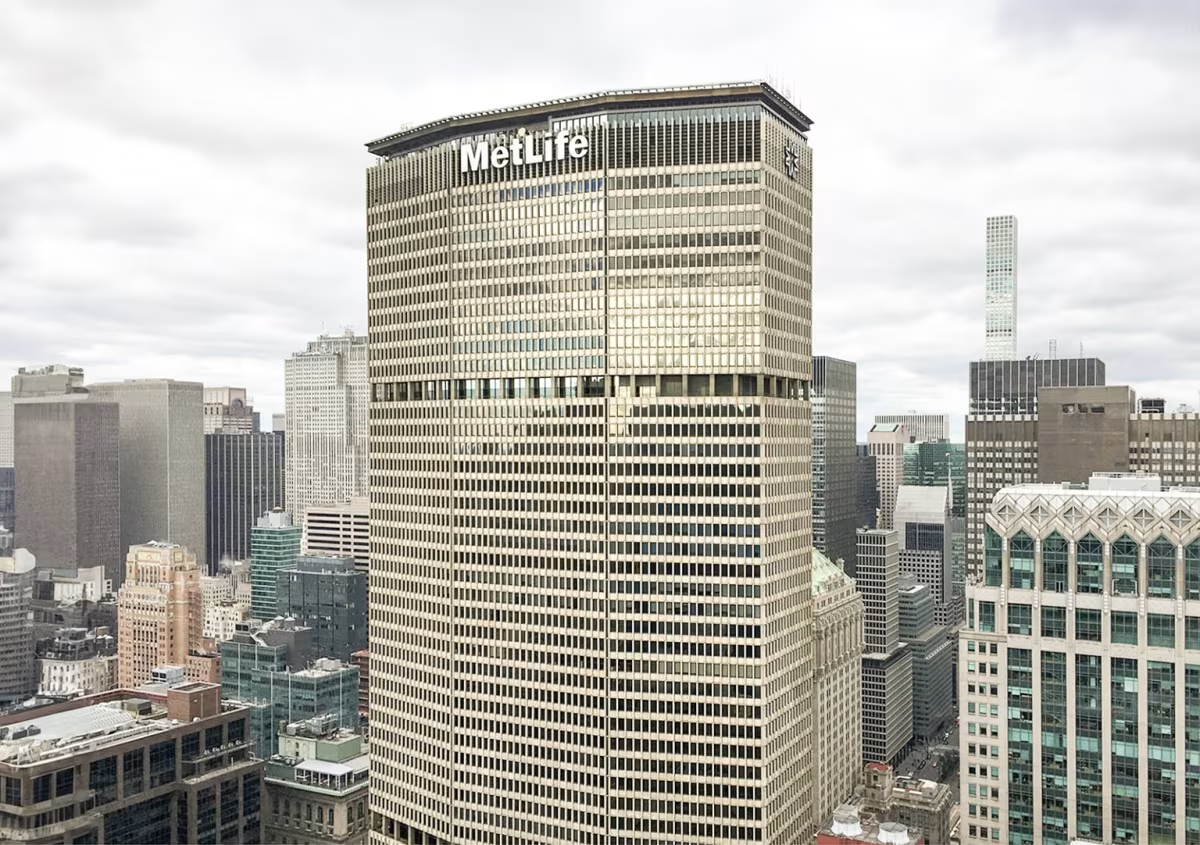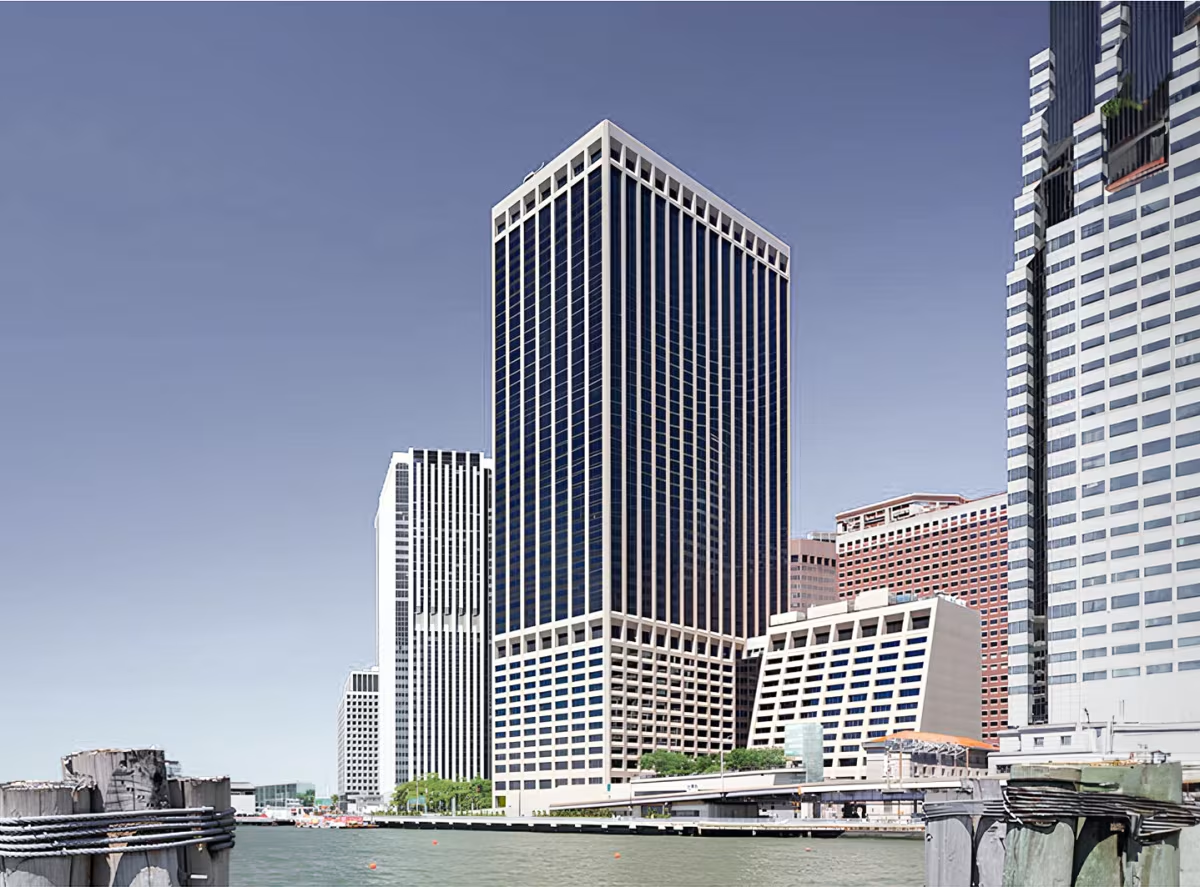MetLife Building vs 55 Water Street Building


Comparing the MetLife Building and the 55 Water Street Building is particularly interesting because they share the same skyline in New York, NY, and were both designed by Emery Roth & Sons. However, they were completed more than 9 years apart.
This offers a unique perspective on how the architect's style and the city's architecture evolved over time.
Height & Size
The MetLife Building is clearly the larger tower of the two, both in terms of height and number of floors. It rises to 807ft (246m) with 59 floors above ground, while the 55 Water Street Building reaches 686ft (209m) with 53 floors above ground.
Of course, each project may have faced different briefs or regulatory constraints, which we don't really know about and could also explain the outcome.
Architectural Style
Both the MetLife Building and the 55 Water Street Building were designed in line with the aesthetic conventions of the International Style style.
The 55 Water Street Building was designed at a moment when the International Style style was already in decline, making it more of a lingering expression of the movement. In contrast, the MetLife Building was built when the style still carried greater cultural weight.
Uses
Both the MetLife Building and the 55 Water Street Building were designed to serve as commercial towers, and that has remained their main use since their completion, serving similar roles in the urban fabric.
Both towers provide significant parking capacity, with MetLife Building offering 315 spaces and the 55 Water Street Building offering 600.
Structure & Facade
Both the MetLife Building and the 55 Water Street Building rely on a Frame structural system.
A frame structure uses a grid of columns and beams to carry the building's loads. This frees the walls from structural duties, allowing for flexible floor plans and larger windows.
They also employ the same type of facade, a Curtain Wall facade.
A curtain wall is a non-load-bearing facade hung from the structural frame. It is anchored to floor slabs and transfers only its own weight and wind loads, allowing for sleek, glassy exteriors.
| MetLife Building | 55 Water Street Building | |
|---|---|---|
| Emery Roth & Sons | Architect | Emery Roth & Sons |
| 1960 | Construction Started | 1969 |
| 1963 | Year Completed | 1972 |
| International Style | Architectural Style | International Style |
| Commercial | Current Use | Commercial |
| 59 | Floors Above Ground | 53 |
| 246 m | Height (m) | 209 m |
| 220,000 m² | Usable Area (m²) | 325,000 m² |
| 23 | Number of Elevators | 71 |
| Frame | Structure Type | Frame |
| Reinforced Concrete | Vertical Structure Material | Steel |
| Reinforced Concrete | Horizontal Structure Material | Reinforced Concrete |
| No | Facade Structural? | Yes |
| Concrete, Quartz, Glass | Main Facade Material | Concrete, Glass |
| Erwin S. Wolfson | Developer | Uris Brothers |
| Jaros Baum & Bolles | MEP Engineer | Jaros Baum & Bolles |
| James Ruderman | Structural Engineer | The Office Of James Ruderman |
| NY | State | NY |
| New York | City | New York |
| 200 Park Avenue | Address | 55 Water Street |